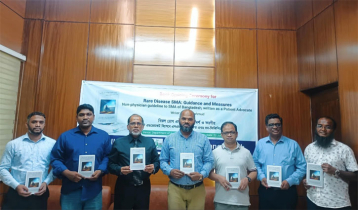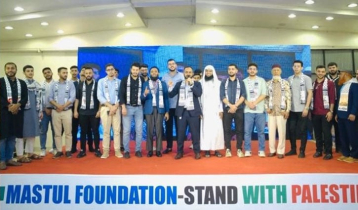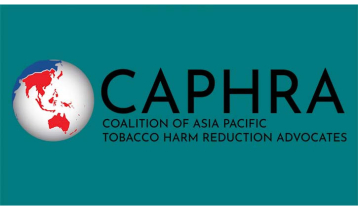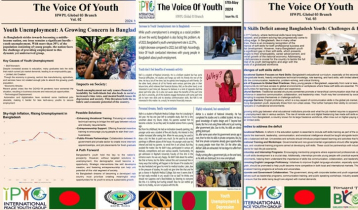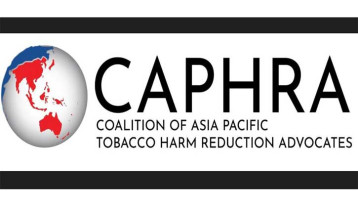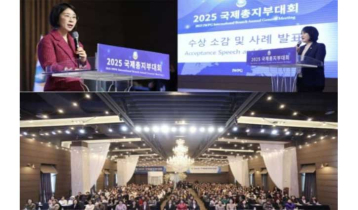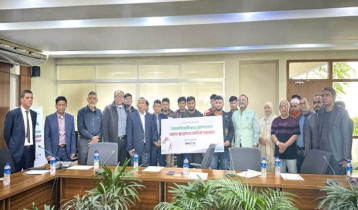Joint appeal made to protect children during COVID-19 outbreak
8 || risingbd.com
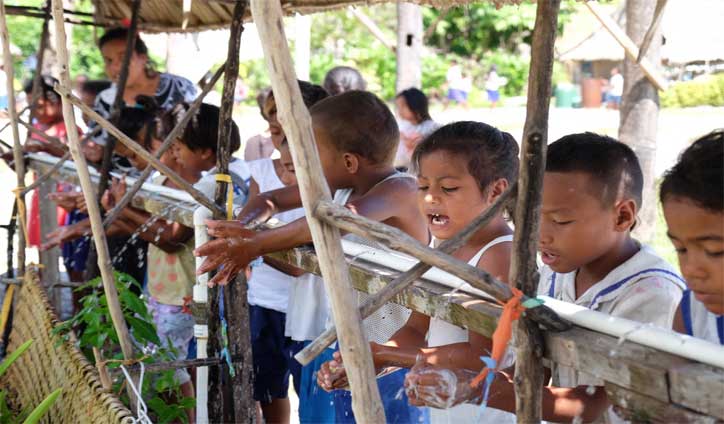
A joint appeal of made for effective response and mitigation of impact of COVID-19 on children in Bangladesh.
In a program, speakers on Sunday (April 5) put emphasize over the ongoing global crisis coronavirus.
While the world is grappling with the outbreak of the coronavirus (COVID-19) pandemic, Bangladesh also starts being affected. Joining Forces Bangladesh appreciates the measures taken by the Government of Bangladesh that includes enforcing nationwide sporadic lockdown; economic measures, test and detect services and appealing to patience and obedience of the Bangladeshi people to stay at home in order to contain this pandemic.
“We also appreciate the tireless effort of medical workers and security personnel who have taken risks while they are committed to prevent the spread of coronavirus (COVID-19) and save the people and the nation from this crisis.”
“All of us are aware that COVID-19 outbreak will adversely affect the condition of children, particularly in the lives of most vulnerable children. This includes disruption to their healthcare, nutrition, protection, education and overall mental wellbeing including social interaction with friends, peers, family members and caregivers. It is also likely that children will face increasing threats to their safety and wellbeing from caregivers because of actions taken to contain the spread of the COVID-19 pandemic.”
To ensure that the well-being of most vulnerable children are not compromised, on behalf of the children, Joining Force Bangladesh appeals to Government of Bangladesh, international communities, business sector, media and civil society to take the following measures:
1. Urgently scale up COVID-19 prevention and response measures for children and their families to strengthen health systems, maintain essential health service delivery, equip frontline health workers, engage and communicate effectively with communities including children, and provide critical child protection interventions and mental health and psychosocial support (MHPSS).
2. Adopt policies and allocate fund for COVID-19 response plans that holistically address the secondary impacts of the pandemic on children and families, particularly with respect to child protection, gender-based violence, education, water and sanitation, food security, and livelihoods.
3. Protect ongoing humanitarian assistance for the most vulnerable, adapt programmes to be COVID-19 sensitive in existing humanitarian response contexts, ensure and where possible maximize humanitarian access including creation of exceptions for humanitarian workers’ and supply chain movements, and find alternatives to humanitarian programme suspensions where COVID-19 prevention policies are required.
4. Disseminate information to keep children safe from COVID-19 and all violence against them by using TV, Radio, social media, mosque and local government Institutions. Information about the existing hotlines to register complaints on violence against children and seek assistance (Ministry of Women and Children Affairs- 109, Child Helpline-1098 and National Emergency Sevice-999) has to be circulated widely.
5. Adapt a policy guideline for childcare during COVID-19 for the children who are staying under various alternative care settings. This policy needs to ensure mechanisms for awareness, prevention, timely reporting and effective responses. Child Welfare Board can play vital role to mobilize the mechanism.
6. Donors should urgently commit emergency funding for health systems strengthening, provide technical resources for support, and ensure equitable distribution of supply chains. They should also finance risk communication/community engagement and provide any necessary online MHPSS training.
7. Businesses should provide paid leave and flexible working arrangements for parents and caregivers, especially women, who need to stay at home to care for their children due to school closures or other response measures. Private sector actors should rapidly increase critical commodity supply chains and establish preferential pricing for or donate these essential commodities.
8. CSOs, including faith-based organizations (FBOs), should assess the beliefs and levels of understanding of COVID-19 in the communities where they work, support the government with development of risk communication/community engagement plans based on these assessments, sensitize community leaders/champions, and amplify agreed risk communication/messaging. FBOs and faith actors can play an important role in addressing beliefs and attitudes that may cause harm or limit an effective response.
9. CSOs should ensure the participation of children in assessments, incorporate their feedback and information needs in relevant plans, develop child-friendly content, ensure dissemination via channels accessible to children, and whenever possible, empower children as agents of change in their communities.
10. Media actors should implement public information campaigns to disseminate reliable, age appropriate information for children and adults so that they understand and implement steps to keep themselves and their community safe from infection. It is critical that coordinated national and local public information campaigns tackle and correct rumors and misinformation that exacerbate fear, panic, stigma, discrimination and mistrust among the population.
Dhaka/Nasim
risingbd.com

